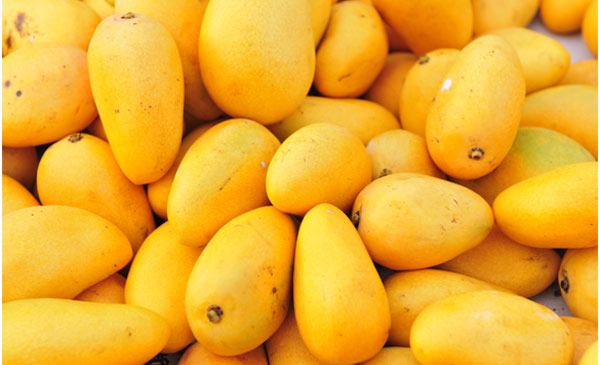ISLAMABAD: The Ministry of National Food Security and Research (MNFSR) on Wednesday issued a statement claiming that timely measures by its attached department, the Department of Plant Protection (DPP), helped ensure smooth mango exports this year without any interceptions abroad. However, independent data shows that the ministry may have been misled by the DPP, as European records confirm multiple interceptions of Pakistani mango shipments.
In its press release, Federal Minister Rana Tanveer Hussain emphasized “zero tolerance” for violators of sanitary and phytosanitary (SPS) protocols. He cited the denial of phytosanitary certificates to three mango shipments bound for Norway on May 25, 2025 as proof of strict enforcement.
According to the ministry, reforms such as staff deployment at exit points, CCTV monitoring, mandatory vehicle punching on certificates, and stricter audits led to the refusal of certificates for three exporters, Pak Punjab International, Sajjad & Co., and Kamran Enterprises found non-compliant with Norwegian import conditions.
However, industry sources disclosed that the same companies, after being denied certificates, reportedly continued to export mangoes under different company names with the alleged support of DPP staff raising questions over the credibility of the “strict action” claimed by the ministry.
The minister claimed that owing to these measures, Pakistan exported about 120,000 metric tons of mangoes in 2025 without a single rejection or interception worldwide. He warned that “irresponsible acts” by a few could have endangered the entire European market but said government action prevented such an outcome.
But these claims are also false. Contrary to these claims, the European Commission’s EUROPHYT portal, which records plant health interceptions, reported significant interceptions of Pakistani shipments this season: two in April, three in May, five in June, twelve in July, 2025. More than one of which were mango consignments cited for insect infestation, plant pathogens, weed seeds, or missing certificates.
While Pakistan exported just over 6,000 tons of mangoes to the EU negligible compared to its 1.8 million ton production, the scale of interceptions was high. Exporters point out that competitors such as India, Thailand, and Kenya faced fewer disruptions despite larger volumes.
The DPP’s performance on other commodities has also been under criticism. From September 2024 to June 2025, Pakistan was unable to export corn to Vietnam due to compliance failures in facilities. Exports resumed in July only after belatedly authorizing fumigation with methyl bromide. Rice exports have also plunged, with EU-bound shipments dropping 80 percent by June compared to January, and overall rice exports declining 60 percent in the first half of the year. The EU’s Rapid Alert System for Food and Feed (RASFF) reported 40 interceptions of Pakistani rice this year for pesticide residues, aflatoxin, heavy metals, and mineral oil.
Industry insiders allege that inspectors charge exporters Rs.100,000–200,000 per audit to approve establishments, while key postings at hot water treatment plants are decided on favoritism and bribes. They also point to favoritism in authorizing only one pre-shipment inspection agency, Baltic Control, despite its record of fake pesticide certifications.
Pakistan’s mango exports to Iran have also declined, dropping from 45,000 tons last year to 30,000 tons this season. The fall has been attributed to favoritism toward a few plants despite their limited capacity and other compliance issues, while major and well-equipped hot water treatment plants were sidelined. Sources allege that corrupt junior officials were posted in key positions, while honest senior officers who refused to issue fraudulent phytosanitary certificates beyond plant capacity were removed or transferred.
The minister’s statement was issued a day before a meeting of the Senate Standing Committee on MNFSR, which has already expressed dissatisfaction with the performance of the newly created National Agri Trade and Food Safety Authority (NA&FSA) the body formed by merging DPP and the Animal Quarantine Department and is examining corruption in mango exports.
It appears that the statement regarding mango exports has been issued in an attempt to pacify the senators, who had sought a compliance report from the DPP under directions given in July 2025 during a meeting of the senate committee held in Karachi.




